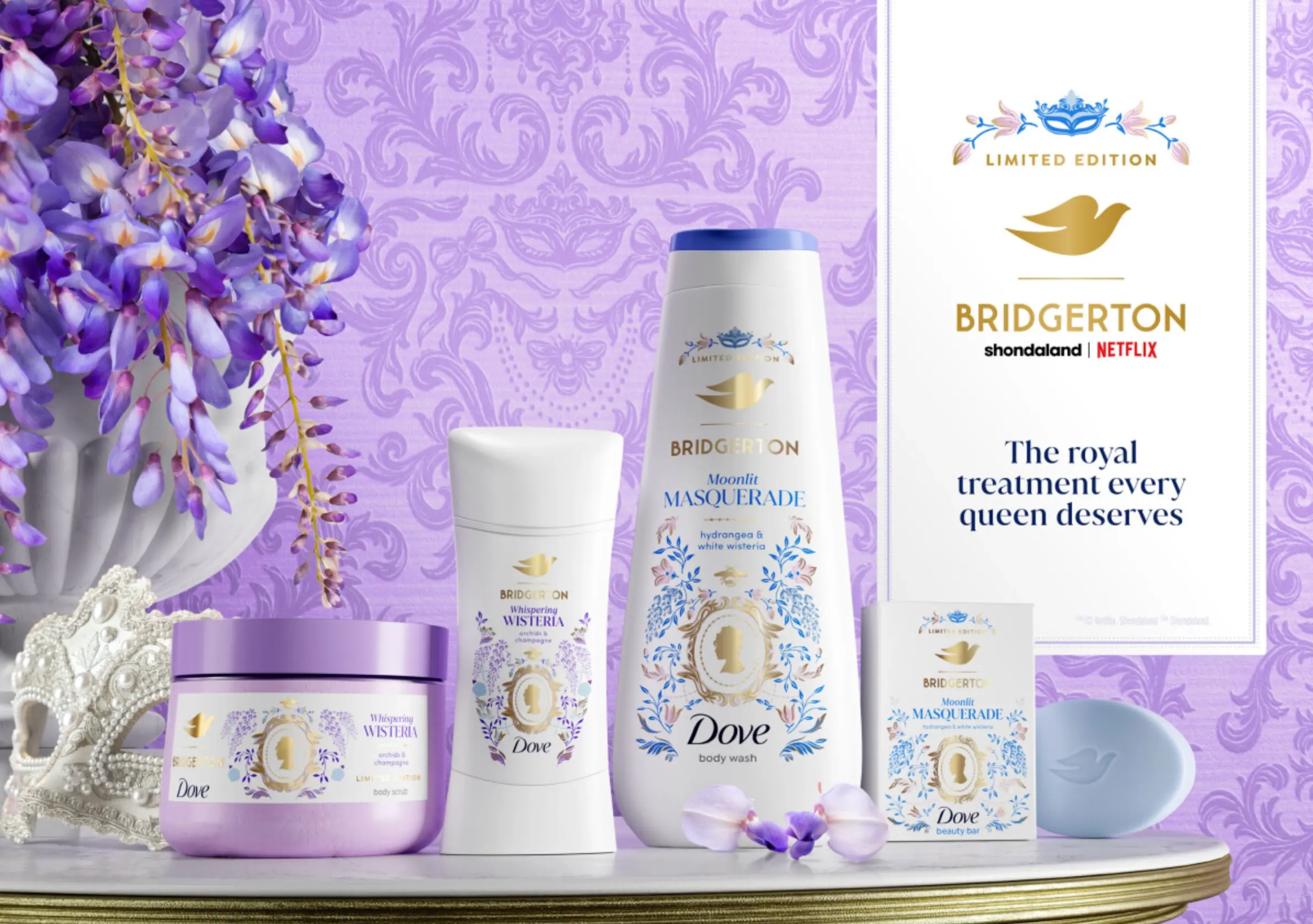The Magic Behind Mcdonald's Marketing Strategy
Updated on
Published on

McDonald’s doesn’t just sell fast food, it sells familiarity at scale. The Golden Arches, the packaging, the menu architecture, and the “I know what I’m getting” feeling are doing just as much work as the product itself. Even small identity choices compound over time, which is why recognizable elements like a mascot logo style can turn into a shortcut for trust and recall.
Under the surface, McDonald’s marketing is a system: positioning that’s easy to explain, offers that feel obvious, and an operational model that makes the experience repeatable in thousands of locations. McDonald’s corporate strategy frames its growth plan as “Accelerating the Arches,” built around maximizing marketing, committing to core menu categories, and doubling down on digital, delivery, and drive-thru (and development in more recent updates). (McDonald's Corporation)
That “system” mindset becomes even more important when you consider the business structure. McDonald’s reported 43,477 restaurants at year-end 2024, and stated that approximately 95% were franchised. (SEC) In a franchise-first model, your brand's identity has to be consistent, and your playbook has to be teachable.
Throughout this guide, we’ll break down McDonald’s marketing and branding efforts with a marketer’s lens: what it’s doing, why it works, and how to translate it into actions for your own business.
-1.webp)
Key takeaways
- McDonald’s positioning stays simple: familiar food, fast, affordable, almost anywhere.
- The brand’s strongest “channel” is consistency across products, stores, app, and ads.
- Operations is part of the promise, not separate from marketing, especially drive-thru and digital ordering. (McDonald's Corporation)
- Local relevance is deliberate: global standards, then regional menu and message choices.
- The lesson isn’t “copy the ads,” it’s “build a system that keeps producing good ads.”
Helpful BrandVM resources you can use while reading
- Effective marketing to build content that compounds.
- Branding strategies to tighten positioning and visual systems.
- Marketing campaigns and strategic marketing for staying aligned with modern channel behavior.
- Iconic brand symbols. for building recognizable brand assets.
- A quick read on branding mistakes to avoid when you try to “simplify” your brand.

Positioning the Brand: How McDonald’s Stands Out
McDonald’s positioning works because it’s easy to repeat and hard to misunderstand. It’s built around a handful of promises that show up everywhere:
- Familiar: you know the Big Mac, the fries, the McNuggets.
- Fast: the experience is designed for throughput and convenience.
- Affordable: value is a constant theme in offers and messaging.
- Available: it’s present in more places than most brands can imagine.
If you’re looking at this as a marketer, the real insight is that McDonald’s doesn’t treat positioning as a slogan. It treats positioning as a set of decisions that drive product, service design, and creative. That’s the difference between “nice branding” and brand messaging that actually changes behavior.

A practical positioning statement (how it shows up in the real world)
McDonald’s doesn’t need a poetic manifesto. A functional version looks like this:
- “When you want something familiar, fast, and affordable, McDonald’s is the easiest choice.”
That single idea reinforces its brand image, improves brand differentiation in a crowded category, and keeps every campaign anchored to a consistent brand positioning.
Scale forces clarity, and McDonald’s uses that as a feature
Because McDonald’s is so heavily franchised, consistency isn’t optional. The company itself describes a broad, repeatable operating model across markets, and its filings confirm how franchise-led it is. (SEC) That structure encourages a “global playbook” approach: the core offer stays stable, then local teams execute within guardrails.

Consistency isn’t boring when the system is designed for it
McDonald’s keeps the core recognizable, then makes seasonal changes feel like “something new” without destabilizing the menu. That balance is what turns a fast-food chain into a long-term brand's commitment to trust.
Where paid media fits in
When you already have recognition, the job of paid media changes. You’re not introducing the brand, you’re reinforcing the promise and driving specific actions (try this LTO, download the app, choose this bundle). That’s why McDonald’s can run large-scale advertising campaigns across its marketing channels and still feel consistent.

Winning Strategies: Attracting and Retaining Customers
McDonald’s growth isn’t powered by one genius campaign. It’s powered by a repeatable machine that cycles attention into visits, then visits into habits.
1) Offer architecture: core menu + value + limited-time novelty
McDonald’s core menu is the foundation, but the marketing engine gets oxygen from change. Limited-time offers and seasonal items do three things well:
- Create urgency (“try it now”).
- Give people a reason to talk (“what’s back?”).
- Protect the core (“the Big Mac stays the Big Mac”).
This is where targeted advertising shines: the message is simple, but the audience and placement can be segmented by region, behavior, and format.
2) Kids and families: the Happy Meal is an experience, not just a product
McDonald’s has spent decades turning the “kids meal” into a ritual. The Happy Meal isn’t marketed like a line item, it’s marketed like a moment: a predictable reward, a collectible, a small surprise. The takeaway for marketers is that “product packaging” can be the experience, not just the container.
3) Partnerships and pop culture: borrowed attention, owned conversion
McDonald’s runs partnerships that feel culturally plugged in, then connects them back to a familiar product flow (order the meal, get the item, share the moment). The “Famous Orders” style of collaboration is a good example of how the brand turns cultural attention into in-store behavior. McDonald’s has published details on collaborations like its Travis Scott partnership, which included a signature order plus a broader marketing activation across channels. (McDonald's Corporation)
This is also where modern marketing campaigns matter: the collaboration isn’t only “an ad,” it’s the full loop (menu, merch, content, social, and retail execution).
4) “Boring” improvements that customers actually feel
Some of McDonald’s best marketing is invisible until you’re in the drive-thru. Smoother ordering, better pickup flow, clearer value bundles, fewer decision points, these aren’t flashy, but they convert.
If you’re building your own playbook, the simplest starting point is to collect proven marketing initiatives and standardize them into a system your team can execute repeatedly.

Building Brand Loyalty: The McDonald's Approach
Loyalty is where McDonald’s scale turns into compounding advantage. The brand doesn’t rely only on mass marketing to stay top-of-mind, it uses product habit, operational consistency, and digital incentives to keep people coming back.
Consistency creates trust, trust creates frequency
People don’t become loyal to a menu item, they become loyal to predictability. That predictability strengthens the brand because the experience reinforces the promise.
Loyalty programs move customers from “occasion” to “routine”
McDonald’s has built MyMcDonald’s Rewards into the app experience, and it clearly positions the program as a points-based system tied to ordering behavior. (McDonald's)
In its 2024 annual report, McDonald’s also highlights the scale of its loyalty ecosystem, describing it as one of the world’s largest loyalty programs, with over 175 million users across 60 markets in 2024. (McDonald's Corporation) That matters because loyalty is not just “retention,” it’s a data engine that improves targeting and offer design.

Personalization is the bridge between loyalty and growth
Here’s where McDonald’s gets very modern. Instead of relying only on broad awareness, it can use the app, offers, and in-restaurant flows to tailor experiences. That’s the difference between generic promotions and personalization powered by marketing efforts and sharper marketing messages.

Digital Marketing and Social Media: Engaging the Connected Consumer
McDonald’s doesn’t treat digital as “a channel.” It treats digital as infrastructure, the thing that makes ordering, loyalty, and messaging easier.
Owned media is the quiet advantage
The app, email, and in-store screens give the brand direct access to customers. That’s a competitive moat because it reduces reliance on paid reach and improves measurement. If you’re building your own digital marketing strategies, this is the lesson: your website and app experience are not separate from your campaign plan, they’re the conversion layer.
Social works because the brand knows what it is
McDonald’s social content tends to work when it does one of three things:
- Makes the product look craveable.
- Taps into a cultural moment without trying too hard.
- Uses humor and simplicity that match the brand voice.
If your content feels stale, the fix is rarely “post more.” It’s usually “make your content more visual and more on-brand.” Here’s a useful BrandVM guide on visual content that applies directly to food and product-driven brands.
Digital can still be brand-building
Digital isn’t only for last-click offers. It’s also how a brand increases brand visibility over time, especially when it connects content, product, and experience into one recognizable loop.
If you’re looking for support across strategy and execution, BrandVM’s digital marketing team in Chicago focuses on building marketing systems that convert, not just “content calendars.”
.webp)
Localized Marketing: Catering to Diverse Tastes
McDonald’s is a global brand, but it competes locally. That’s a core strategic tension: standardize enough to stay recognizable, localize enough to stay relevant.
Standardize the brand, localize the details
Localization works best when it’s intentional, not chaotic. McDonald’s can maintain a familiar experience while tailoring menu items and promotions to regional preferences. That’s how the brand resonates without losing its core identity.
A practical way to think about it:
- Global: identity, service expectations, core menu anchors, brand voice.
- Local: menu variations, cultural references, timing, community partnerships.
Local nuance is still marketing, not just operations
Most brands talk about localization like it’s only a product decision. In reality, it touches marketing strategy, pricing, creative, and media planning.
McDonald’s also uses region-specific advertising campaigns and tailored marketing messages to match local culture and buying behavior. For brands trying to scale across cities or countries, this is where “one-size-fits-all” breaks.

If you’re building location-specific growth (multi-location retail, franchises, or regional expansion), “localization” becomes a performance lever. BrandVM’s Toronto team specializes in this kind of execution, including successful localized marketing and measurable data-driven marketing.
Personalization and Data-Driven Marketing: Insights for Success
McDonald’s personalization isn’t magic, it’s a process: collect behavior signals, segment customers, then send the right offer at the right time.
This is the practical definition of personalized marketing strategies. It’s not “use someone’s first name.” It’s building systems that learn from what people actually do.
What personalization looks like in practice
Personalization tends to show up as:
- App-only offers (driving adoption).
- Rewards tiers and points incentives (driving frequency).
- Bundles and value options that match budget pressure (driving conversion).
McDonald’s own MyMcDonald’s Rewards pages make it clear that the app and loyalty experience are designed to encourage repeat behavior and redemption loops. (McDonald's)
Data doesn’t replace creativity, it makes creativity sharper
When brands use data well, creative gets more focused. You can test offers, identify patterns, and then amplify the winners. This is where strong marketing messages and repeatable personalized marketing campaigns outperform random one-offs.
You’ll also see how a consistent personalized marketing approach improves measurement. You stop guessing which promotions work and start learning.

When personalization is tied to the brand promise, it doesn’t feel invasive. It feels helpful. Done right, it boosts brand visibility because customers interact with the brand more often and in more places.
Innovation in Marketing: Staying Ahead of the Curve
McDonald’s innovation is often less about “new tech” and more about removing friction. The brand’s growth strategy has explicitly emphasized doubling down on Digital, Delivery, and Drive Thru (and in later strategy iterations, Development). (McDonald's Corporation)
That framing is a marketer’s gift: instead of asking, “What should we post next?”, you ask, “What experience improvement creates a story customers actually feel?”
The drive-thru is a marketing channel
Drive-thru isn’t just a fulfillment method. It’s a brand touchpoint that shapes perception. Faster service and clear order flow reinforce the promise of convenience, which is why operational investments often become “marketing wins.”

Digital ordering is the new baseline
Digital ordering and loyalty are now central to McDonald’s growth narrative, and the company’s annual reporting highlights digital and loyalty as key platforms in the business. (McDonald's Corporation)
This is where your website, app, and CRM stop being “tech projects” and become core marketing infrastructure.
Innovation is only useful if it’s repeatable
The best innovations are the ones you can roll out across thousands of stores without breaking the experience. That’s why McDonald’s focuses on systems and processes, not just one-off stunts.
If you’re building your own engine, this is what sustainable marketing strategies. look like: a consistent core with repeatable experimentation layered on top. That often includes reliable digital marketing tactics, but only when they connect back to the core promise.

McDonald’s Marketing Mix (4Ps) Explained in One Table
Here’s a simple way to summarize the McDonald’s playbook without the fluff.
McDonald’s 4Ps (Marketing Mix)
- Product:
- Core menu anchors (repeatable favorites)
- Limited-time offers that create urgency
- Local variations to match regional tastes
- Price:
- Value bundles and affordability messaging
- Tiered pricing to serve different budgets
- Promotions tied to app adoption and loyalty
- Place:
- Massive footprint and franchised distribution (SEC)
- Drive-thru as a convenience engine (McDonald's Corporation)
- Digital ordering, delivery, and pickup flows (McDonald's Corporation)
- Promotion:
- Mass reach campaigns + targeted offers
- Cultural collaborations (celebrity meals, moments) (McDonald's Corporation)
- Loyalty messaging that turns visits into habits (McDonald's)
What Brands Can Copy (and What Not to Copy)
This is the part most “brand strategy” articles skip. McDonald’s is a great model, but only if you copy the right things.
What to copy
- Build a simple promise that can survive scale (this is where marketing and branding strategies should start).
- Invest in clarity: tight brand positioning makes every campaign easier.
- Treat consistency as a growth lever, not a creative constraint (see the brand's commitment to consistency theme).
- Use offers as product storytelling, not discounts, then reinforce with personalized marketing messages.
- Make “operations improvements” part of your narrative. Convenience is a feature customers notice.
- Let loyalty and digital reduce guessing: the MyMcDonald’s model is a real-world reminder that retention is built into product and experience. (McDonald's)
What not to copy
- Don’t chase pop culture collaborations without having a stable core. It looks forced fast.
- Don’t try to outspend your category. McDonald’s advantage is scale, not just creativity.
- Don’t overload the menu or message. Most brands need fewer offers, not more.
- Don’t “do digital” without a conversion foundation (your site/app experience is part of marketing approaches).
- Don’t treat innovation like novelty. Innovation should be repeatable and measurable.
- Don’t let bad branding decisions creep in while you’re “simplifying” (inconsistent visuals, vague positioning, disconnected voice).
If you want a deeper BrandVM read on McDonald’s-specific brand choices, this breakdown of McDonald’s marketing campaigns and brand cues is a useful companion piece.
.webp)
Key Takeaways
- McDonald’s wins because its system is consistent, not because each campaign is “genius.”
- The brand is built on recognizable assets and repeatable experience, not constant reinvention.
- Promotions work best when they reinforce the brand promise: value, familiarity, convenience.
- Digital and loyalty are growth platforms, not side channels. (McDonald's Corporation)
- The most transferable lesson: build a playbook your team can execute across markets.
FAQ: McDonald’s Marketing Strategy
What is McDonald’s marketing strategy in one sentence?
McDonald’s marketing strategy is to make a familiar, affordable, convenient meal feel like the easiest choice, then reinforce that choice through repeatable experience, offers, and loyalty.
Why does McDonald’s marketing stay so consistent?
Because the business is built for scale and repeatability. With a heavily franchised footprint, the brand playbook has to stay stable to protect consistency across locations.
How does McDonald’s use digital marketing?
It uses digital to reduce friction and build retention through app-based ordering and loyalty. McDonald’s also emphasizes digital and loyalty as key platforms in its public reporting.
What role does MyMcDonald’s Rewards play?
It encourages repeat visits through points and redemption, and it supports more personalized offers and messaging through first-party behavior signals.
Can smaller brands learn from McDonald’s without McDonald’s budget?
Yes. The replicable parts are clarity (positioning), consistency (experience), and a simple offer system that cycles novelty without confusing customers.
What should brands avoid copying from McDonald’s?
Don’t chase scale tactics (mass media spend, celebrity collabs) if you haven’t nailed the core: product clarity, experience, and a consistent brand system.
What McDonald’s Teaches Marketers
McDonald’s stays dominant because it treats marketing as a connected system: strategy, brand, offers, operations, digital, and loyalty all reinforce the same promise. It’s not just “good ads,” it’s a machine that keeps producing good ads because the underlying foundation is stable.
If you’re trying to build that kind of foundation for your business, start with two things:
- Clear branding strategies that make your positioning and identity easy to execute.
- A conversion-ready digital base (site, structure, content), because your brand’s effective marketing depends on what happens after the click.
And if you want a brand-building lens specifically, strong storytelling still compounds. This guide on effective marketing through narrative shows how to turn “features” into an idea people remember.








